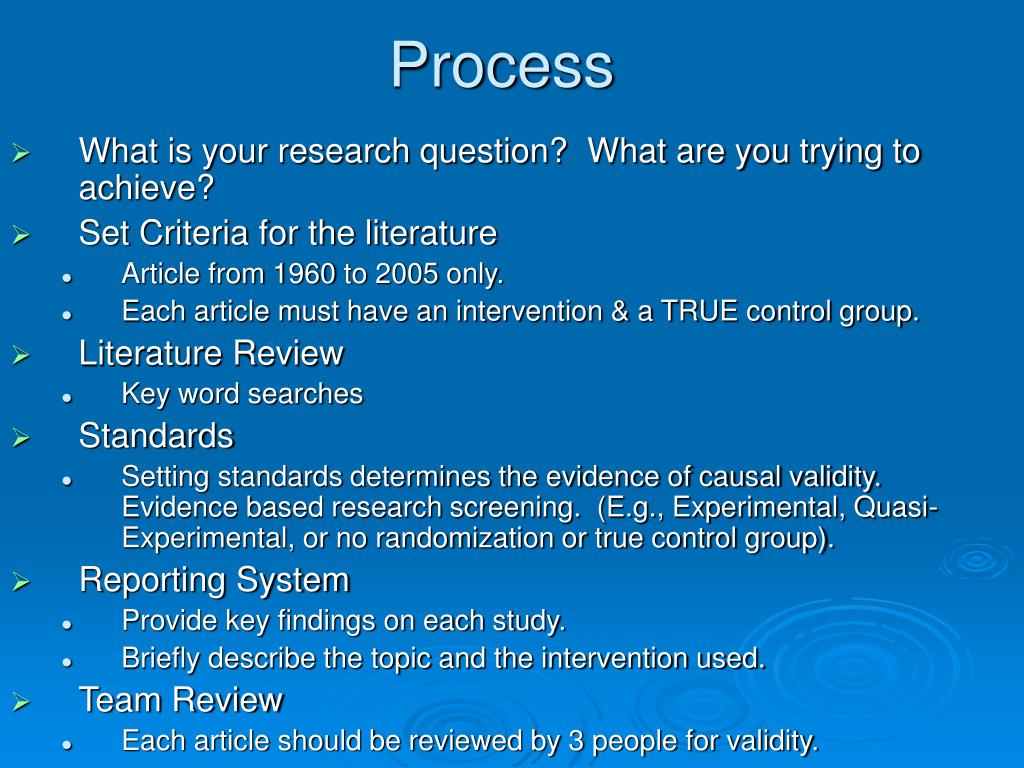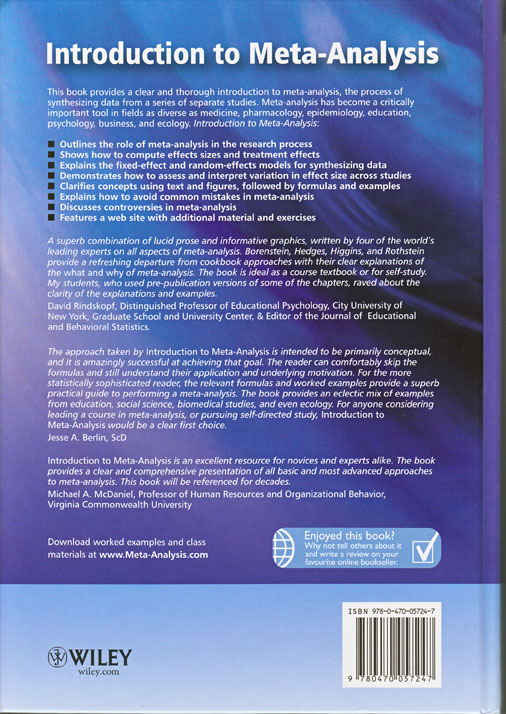

A prominent example of this is the use of hydroxychloroquine, where some studies reported a large positive effect, whereas others indicated no significant effect or even increased mortality when hydroxychloroquine was used with the antibiotic azithromycin. These inconsistencies may contribute to contradictory results in the research evaluating COVID-19 treatments. Some meta-analyses did not evaluate or treat substantial heterogeneity (I2 > 75%) others did not include additional analysis for publication bias none checked for evidence of p–hacking in the primary studies nor used recent methods (i.e., p-curve or p-uniform) to estimate the average population-size effect.

Different factors during the COVID-19 pandemic have impacted key features of conducting a good meta-analysis. Meta-analyses have historically been extremely useful to determine treatment efficacy but recent debates about the use of hydroxychloroquine for COVID-19 patients resulted in contradictory meta-analytical results. Understanding the effects of COVID-19 on the cardiovascular system is essential to providing comprehensive medical care to patients receiving HCQ treatment.ĭespite the massive distribution of different vaccines globally, the current pandemic has revealed the crucial need for an efficient treatment against COVID-19. Our retrospective observational analysis suggested that the proportion of CVAE associated with HCQ, especially TdP and QT prolongation, was higher in patients with COVID-19. Cases with COVID-19 treated with HCQ exhibited relatively higher proportions of torsade de points (TdP) and QT prolongation (OR 3.10, 95% CI 2.24-4.30), shock-associated TdP (OR 2.93, 95% CI 2.13-4.04), cardiac arrhythmias (OR 2.07, 95% CI 1.60-2.69), cardiac arrhythmia terms (including bradyarrhythmias and tachyarrhythmias) (OR 2.15, 95% CI 1.65-2.80), bradyarrhythmias (including conduction defects and disorders of sinus node function) (OR 2.56, 95% CI 1.86-3.54), and conduction defects (OR 2.56, 95% CI 1.86-3.54). We found that CVAE was higher in cases with COVID-19 compared to those without COVID-19, odds ratio (OR) of 1.26 and a 95% confidence interval (95% CI) of 1.02-1.54. Then we analyzed whether there were differences in CVAEs between the two groups. We identified 3302 adverse event reports from the FAERS database in the year 2020 and divided them into COVID-19 and non-COVID-19 groups, respectively. This study aimed to present an observational, retrospective, and comprehensive pharmacovigilance analysis of CVAE associated with HCQ in patients with and without COVID-19 using the US Food and Drug Administration Adverse Events Reporting System (FAERS) data from January 2020 to December 2020. Hydroxychloroquine (HCQ)-associated cardiovascular adverse events (CVAEs) have been increasingly reported. Hence, it may be prudent for clinicians and researchers to focus on other therapeutic options that may show greater promise in this disease.Ĭoronavirus disease 2019 (COVID-19) is a global pandemic. The meta-analysis found that there was no clinical benefit of using either HCQ by itself or in combination with AZM for the treatment of COVID-19 patients.

Meta-regression analysis showed that age was the factor that significantly affected mortality (P<0.00001).
Comprehensive meta analysis 2.2.064 download plus#
Furthermore, the mortality difference was not significant, neither in HCQ treatment group (RR: 0.86, 95% CI, 0.71-1.03) nor in HCQ plus AZM treatment group (RR: 1.28, 95% CI, 0.76-2.14) in comparison to controls. Combination of HCQ with AZM also did not lead to improved treatment outcomes (RR: 1.26, 95% CI, 0.91-1.74). The data showed no significant difference in treatment efficacy between the HCQ and control groups (RR: 1.02, 95% CI, 0.81-1.27). Among these, 37 studies including 45,913 participants fulfilled the criteria for subsequent meta-analysis. Our systematic review retrieved 41 studies. Data from all studies that focused on the effectiveness of HCQ with or without the addition of azithromycin (AZM) in confirmed COVID-19 patients, which were published up to 12 September 2020, were collated for analysis using CMA v.2.2.064. We performed a systematic search in PubMed, Scopus, Embase, CochraneLibrary, Web of Science, Google Scholar, and medRxiv pre-print databases using available MeSH terms for COVID-19 and hydroxychloroquine. A systematic review and meta-analysis was carried out to examine the role of hydroxychloroquine (HCQ) in the treatment of COVID-19.


 0 kommentar(er)
0 kommentar(er)
